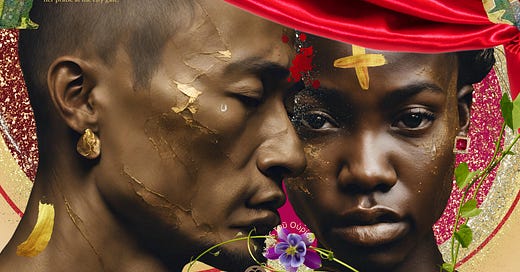Gentle reader,
I’m still fond of Veggie Tales: especially the silly songs, Jr. Asparagus when he’s scared, and that gorgeous queen of materialism, Madame Blueberry, but I’ve never gotten over what the franchise did to Bathsheba.
The episode is called “King George and the ducky;” David becomes King George, a selfish king who loves to take baths, and Baths…
Keep reading with a 7-day free trial
Subscribe to Church Blogmatics by Beth Felker Jones to keep reading this post and get 7 days of free access to the full post archives.




